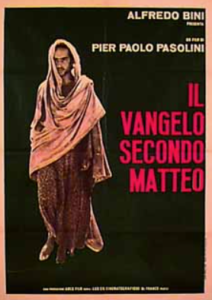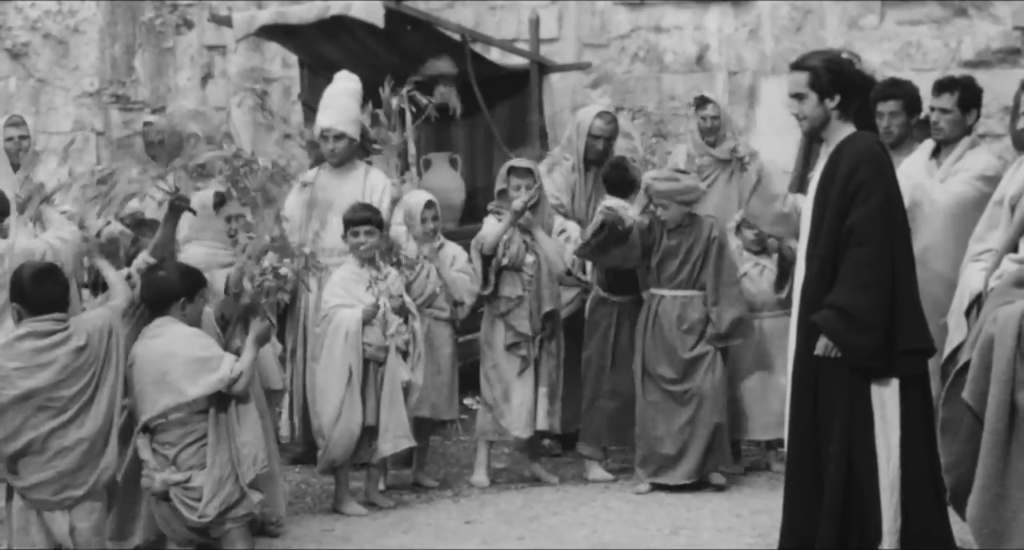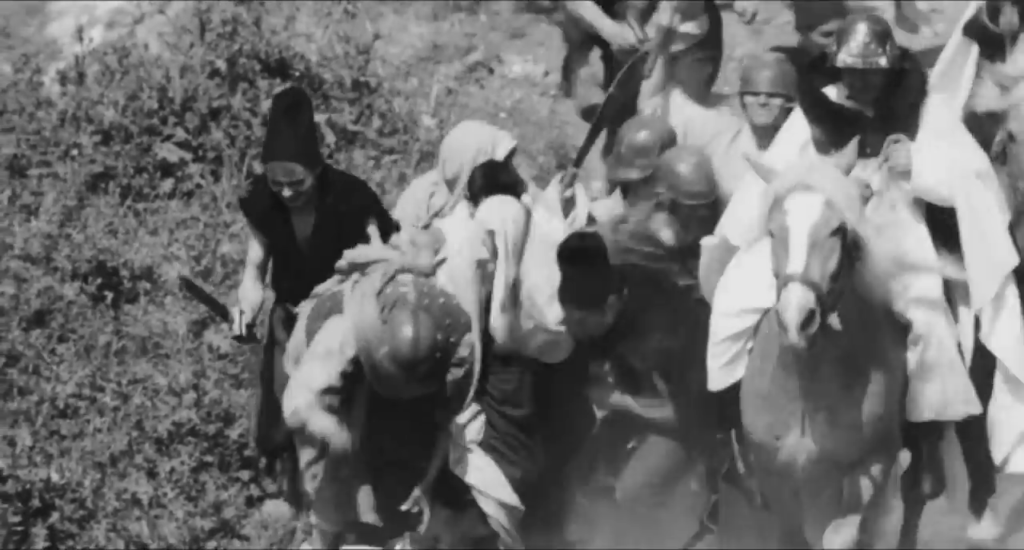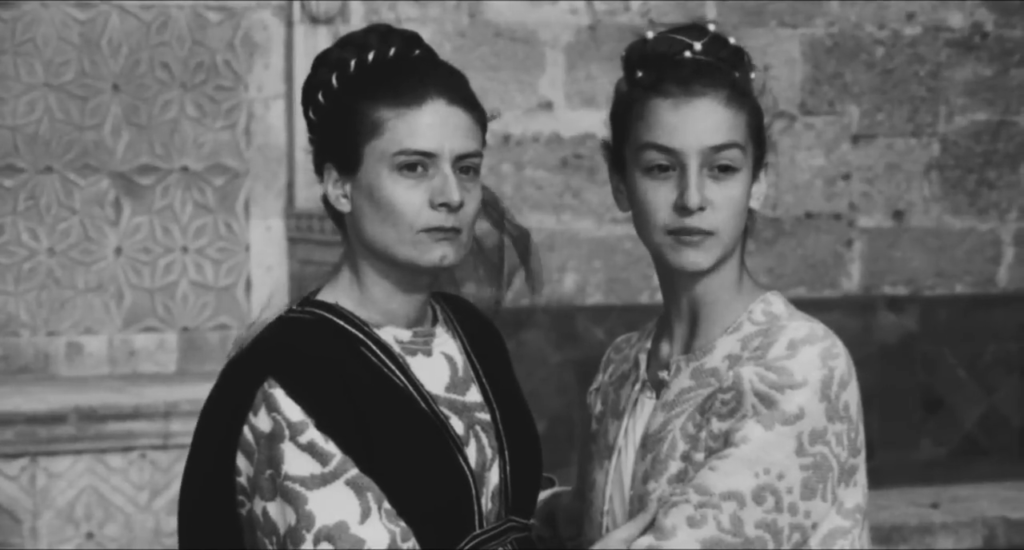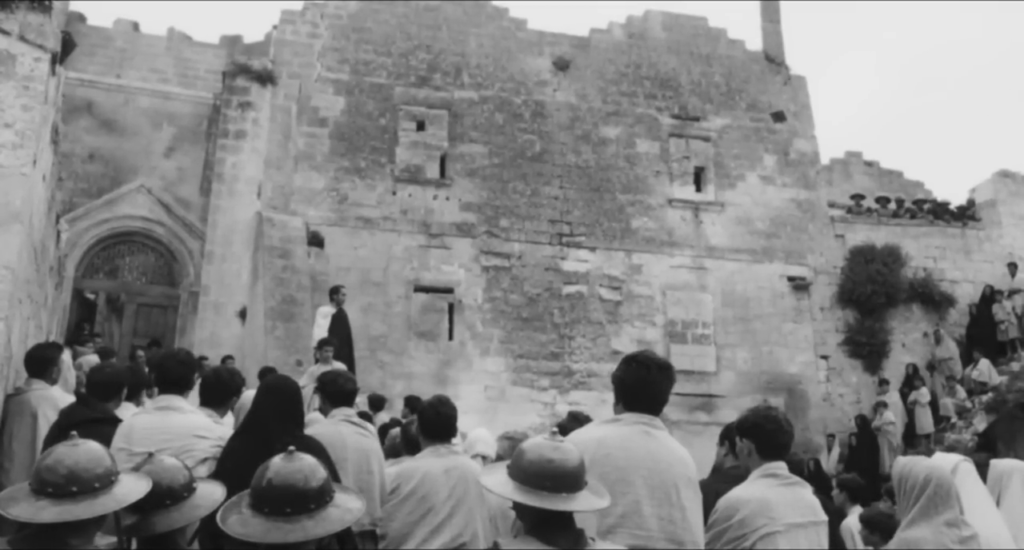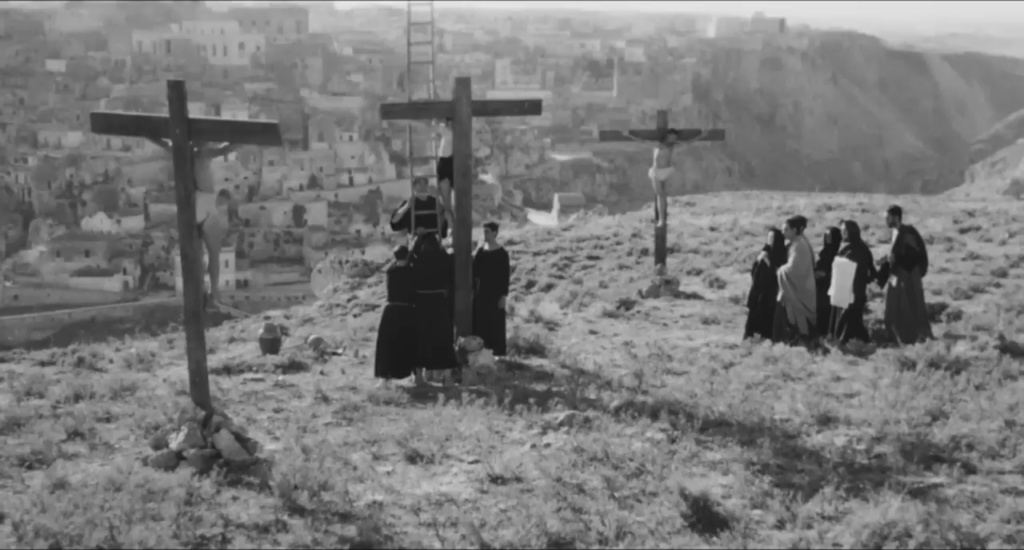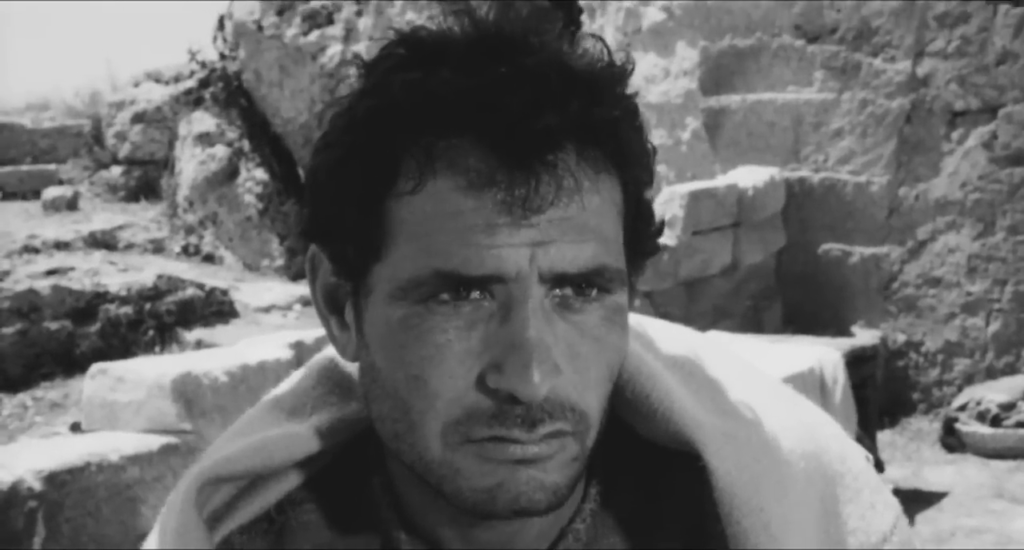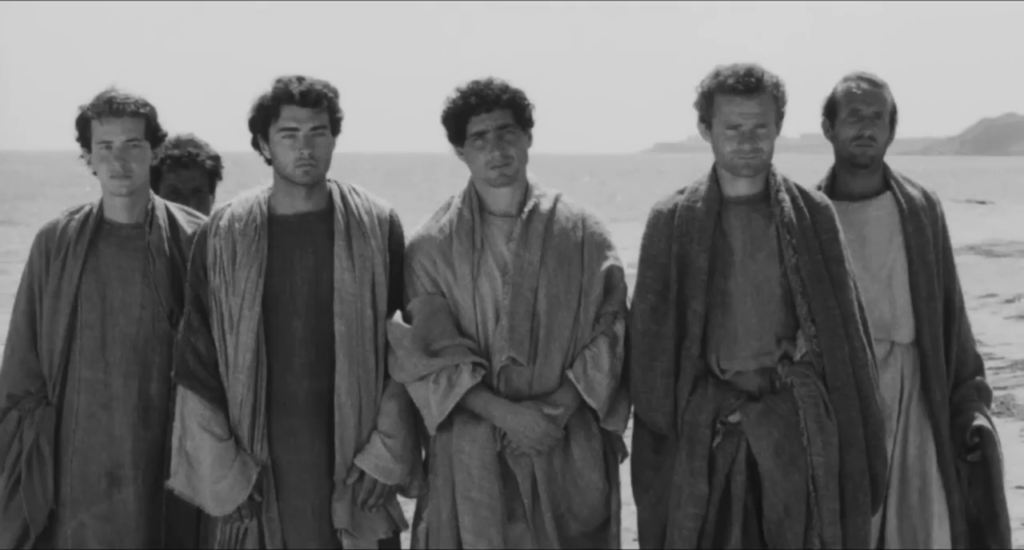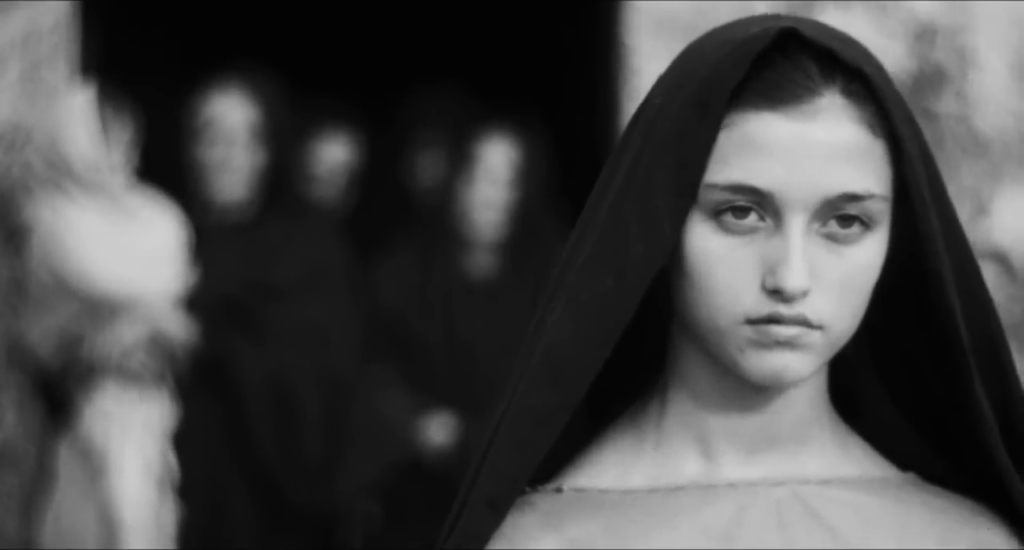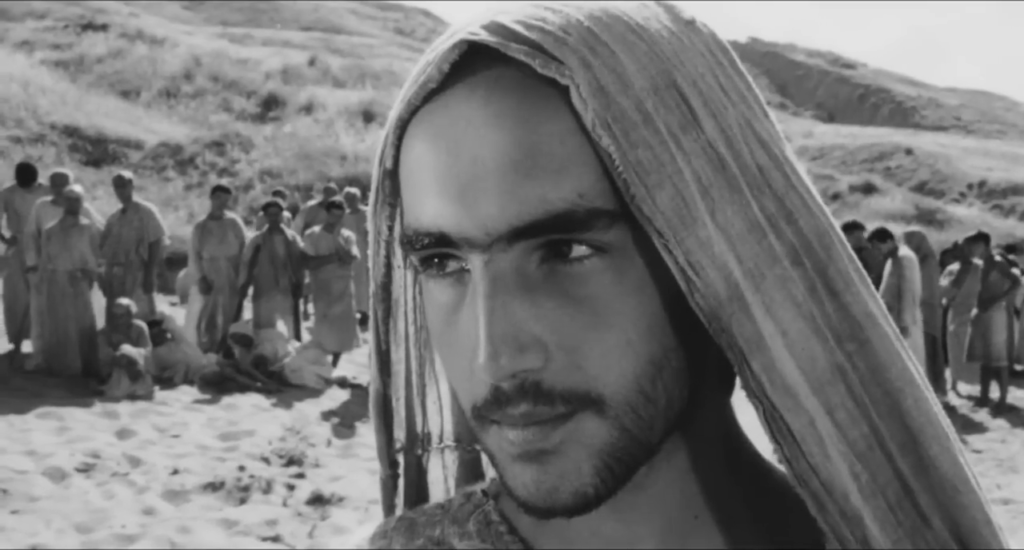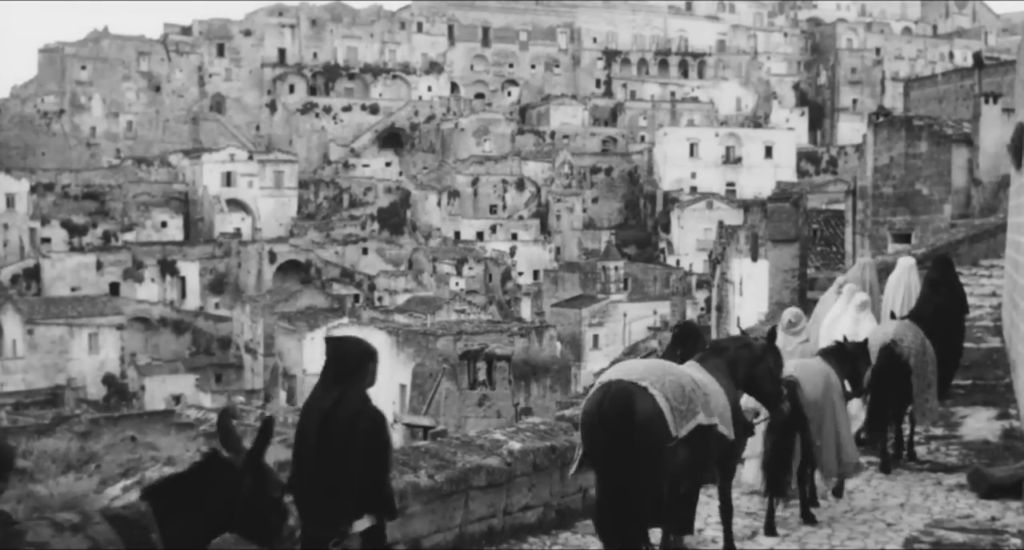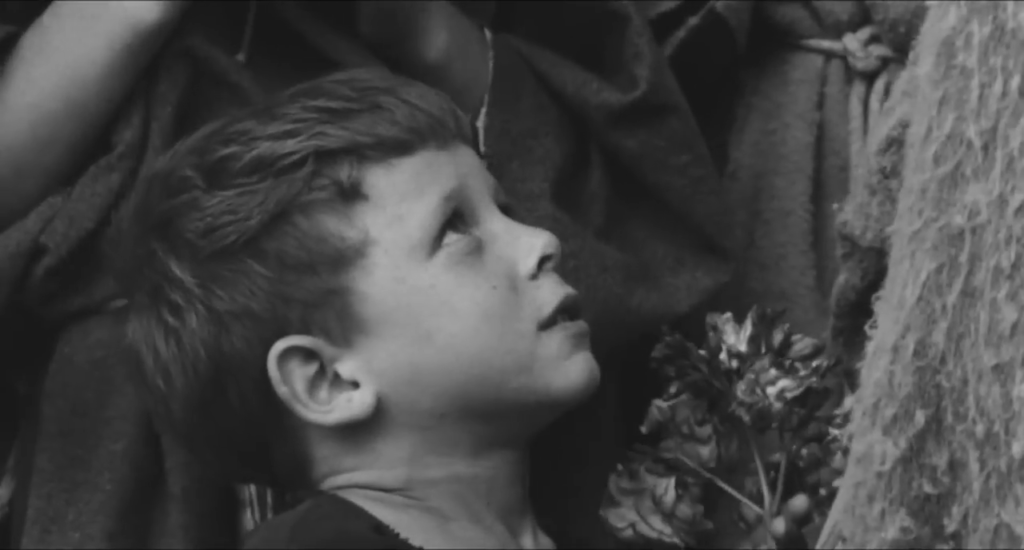Gospel According to St. Matthew, The (1964)
“Many are called but few are chosen.”
|
Synopsis: |
|
Genres, Themes, Actors, and Directors:
Review: He notes that while “the pacing is very slow and most of the film is played in a subdued manner,” this actually “makes several scenes of callous violence perpetrated by authority figures on the masses particularly jolting” — i.e., “soldiers randomly kill babies who might be Jesus”: … and “sweet-faced Salome finishes a lovely dance and demands the head of John the Baptist.” Peary asserts (and I agree) that while “watching Jesus wander the deserts, meeting the poor and delivering defiant speeches (with one famous Christ quote after another), there is a strange feeling of authenticity, as if somehow news cameras were at the scene.” Peary wonders about Marxist Pasolini’s “feelings about Christ” given how he’s portrayed here: at first he “seems concerned only with getting people to worship him… but in time… shows signs of compassion and a willingness to help, even sacrifice himself, for mankind.” Indeed, “Christ is a revolutionary who unites the masses and becomes a martyr to the cause, defying those in authority in church and state, and forcing these hypocrites, to reveal their true natures.” Those who grew up hearing the gospel of the Christian New Testament will surely be fascinated to see it coming to life here without alteration. I found myself mesmerized while watching realistic-looking (non)-actors play out the roles I’d learned so much about; this felt much more like the “real deal,” historically speaking, than any other Biblical epic I’ve seen. With that said, I can see how those not steeped in this particular storyline might be either less compelled by its content, and/or confused. (I’m reminded of taking a European art history class in college and being informed by our professor that having a basic understanding of Christianity would help us — a lot. Indeed, it did.) Of particular note is the plum central casting of non-actor Enrique Irazoqui as Jesus. The value of his intense gaze and unwavering commitment to the role are difficult to overstate, given how much of the storyline he (naturally) dominates. As noted on IMDb’s Trivia page:
(One also can’t help noticing how many handsome young men were cast as Jesus’s disciples…) It’s worth pointing out that “musical selections include the Congolese ‘Missa Luba,’ Prokofiev’s ‘Cantata’ from Alexander Nevsky, and Bach’s ‘St. Matthew Passion’,” as well as Odetta singing ‘Sometimes I Feel Like a Motherless Child.’ And I feel compelled to share the weird last sentence of Peary’s review, in which he notes that “this is the only film in which the Virgin Mary (who is pretty!) has a mustache.” Ummm… Wha?! Notable Performances, Qualities, and Moments: Must See? Categories
(Listed in 1001 Movies You Must See Before You Die) Links: |
